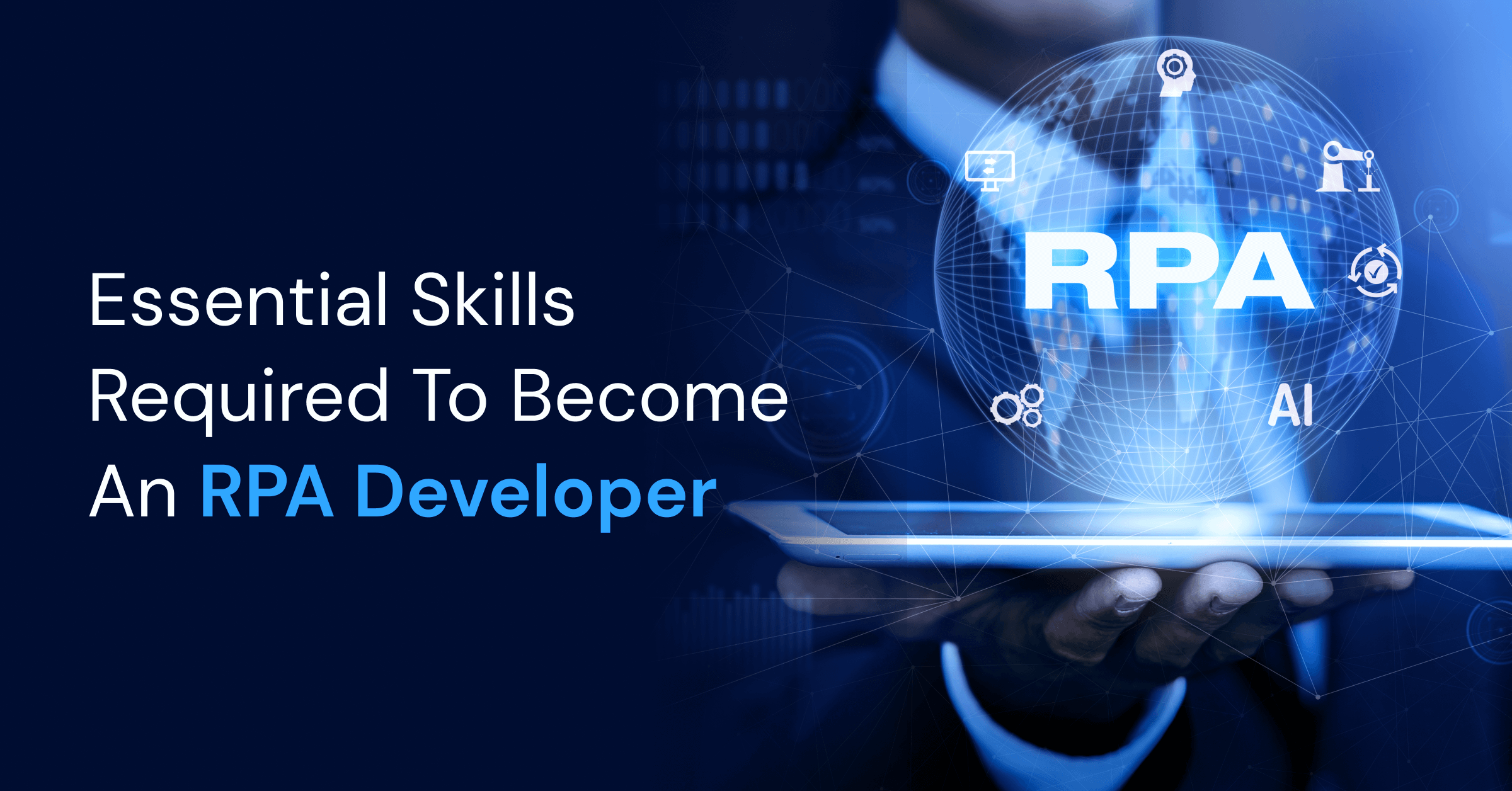
12 Essential Skills Required to Become an RPA Developer
Apr 16, 2024 4 Min Read 2676 Views
(Last Updated)
Have you ever placed a purchase order online and received emails with shipment reminders, dispatching details, and subsequent delivery dates? Of course, you might have! Ever wondered how these automated emails are sent? The technology behind this is Robotic Process Automation (RPA). So, what exactly is RPA?
RPA is the skillful application of software with AI and machine learning skills to handle voluminous and repeated operations that people previously performed.
RPA allows software robots to be configured to take data and conduct routine tasks, such as sending automated emails or improving process flows or company processes. RPA is easy to use, but it also has various advantages, like increased efficiency and better customer service.
Table of contents
- 12 Crucial Skills To Become A Successful RPA Developer
- Strategic Planning Skills
- Strong Analytical Skills
- Problem-Solving Abilities
- Understanding of Programming Languages
- Basic Workflow Design Skills
- Understanding of Document Object Model
- Experience in Data Analytics
- RPA Platform Skills
- Business Process Management
- Debugging and Testing of the Robots
- Understanding of User Experience Design
- Excellent Communication Skills
- Conclusion
- FAQs
- Is RPA simple to learn?
- Is RPA based on Python?
- Is RPA a viable career option?
- Is there a demand for RPA developers?
- Do we need coding knowledge for RPA?
12 Crucial Skills To Become A Successful RPA Developer
This article will discuss the 12 essential skills for becoming a top RPA developer. Continue reading!
1. Strategic Planning Skills
The first and foremost skill required for RPA developers is strategic planning. In this field, planning is critical to success. Setting design goals or initiatives for your RPA project, as well as mapping out workflow, will make implementation run more smoothly. Hence, a clear strategic roadmap describing the aims of an organization’s RPA operations is required. The advantages of RPA can be negated if it is implemented incorrectly. Before diving in, make sure your company has a solid RPA strategy and roadmap, making strategic planning skills a must-have for RPA developers.
2. Strong Analytical Skills
The most successful RPA strategies include instructions for identifying, evaluating, and prioritizing the processes that should be automated. Organizations should review procedures from beginning to end before automating. Determine which systems are now ready for automation and must be changed first. This exercise should also identify any jobs that differ from one person to the next and, as a result, need to be standardized before automation is used. RPA’s capacity to optimize workflow is a primary benefit of its adoption. Therefore as an RPA developer, you need to have strong analytical skills to do these tasks.
3. Problem-Solving Abilities
An RPA developer may also be required to devise a strategy for dealing with and mitigating errors or problems throughout the RPA deployment, which necessitates problem-solving skills. Automation does not always go as planned the first time. Bugs will appear as a result of mistakes. You may be in charge of testing and bug fixes. The ability to debug a robot will come in handy when dealing with any problem, saving you time and stress.
Before we proceed further, it’s essential to have a solid foundation in automation testing principles and selenium basics. If you’re eager to dive deep into software testing, consider joining GUVI‘s Automation Testing with Selenium Career Program. In this program, you’ll learn the fundamentals of Selenium, Python, Java, Jenkins, JMeter, API Testing, and more. Gain hands-on experience with industry-standard tools and techniques to get into a professional career focusing on the quality of Product & Process development.
Also, if you want to explore Automation Testing with Python through a Self-paced course, try GUVI’s Self-Paced Selenium Automation with Python certification course.
4. Understanding of Programming Languages
Even though RPA technologies are low-code, developers should nonetheless investigate the processing underlying them. They’ll need some coding skills for that. They will need to grasp the underlying languages of RPA platforms to build and maintain them as RPA implementations become more complicated and scale with use. Programming languages such as C/C++, Python, Ruby, and Java (to name a few!) can come in handy. RPA developers who know Python will be able to write custom code and access libraries that will allow bots to accomplish more complicated tasks more quickly.
5. Basic Workflow Design Skills
One of the major skills required for RPA developer is workflow design skills.Basic workflow skills are required for designing and developing bot workflows. Some of the skills to master include decision diamonds, decision trees, decision tables, state machines, UML diagrams, and Business Process Modeling Notation (BPMN) notations. These abilities are required for designing and testing all feasible robotic workflow paths. Workflow designs should be developed with 100 percent accuracy, with all possible infinite loops recognized and resolved, all possible ways correctly thought out, and test cases created.

6. Understanding of Document Object Model
When searching for a web page element, it’s not always as simple as pointing at one in the recorder and selecting it. Because we frequently use dynamic web pages or pages powered by JavaScript, understanding the Document Object Model (DOM) and analyzing the page’s source code is necessary for any RPA developer.
7. Experience in Data Analytics
Phase 2 of RPA requires data integration skills. Bots frequently use information from a company’s relational databases. SQL queries are the most efficient technique for bots to retrieve this data. As a result, developers should have a firm grasp of SQL. Furthermore, any data analytics abilities will aid in the transformation of complex data sets and process knowledge into a set of specified job automation rules. Operating on text is also a requisite. Text is used as an input or output in most RPA implementations. In most circumstances, string operations or regular expressions should be used to extract dates, addresses, VIN numbers, account numbers, and other data from this text.
8. RPA Platform Skills
Experience with RPA platforms, such as Automation Anywhere, Blue Prism, and UiPath, is one of the essential skills that hiring managers look for. For constructing RPA bots, these technologies provide out-of-the-box, low-code, drag-and-drop capabilities. They enable developers to automate processes fast and easily without requiring considerable coding. Each of these three RPA systems has its own set of certification training.
Further Reading: 20 Best Robotic Process Automation Tools in 2022
9. Business Process Management
To recognize and suggest which processes will profit from RPA and which will not, developers must first understand their company’s operations and the elements that affect them. Also, whether any exceptions apply. They should meet with personnel directly involved in the company’s operations to learn about the specific duties they are responsible for to gain a better grasp of the procedures. These skills will be aided by knowledge of business processes management methodologies such as Six Sigma or Lean.
10. Debugging and Testing of the Robots
Because robots do not always perform as expected the first time, it is necessary to thoroughly understand how to locate faults in code, scripts, and workflows, depending on the tool. You must understand how to isolate a defective piece, identify the offender, and ensure that this does not happen again. To put the correct number of tests in place, you’ll need to know how to spot edge cases and only run the tests that are truly necessary for a particular bot.
11. Understanding of User Experience Design
Understanding user experience design expertise applies to any development function, but it is significant for RPA software. Because the primary user group is business-related rather than technical, the interface and bot training should be as simple as possible to guarantee smooth incorporation into the workflow.
12. Excellent Communication Skills
Last but not least, strong communication skills are also very much an essential prerequisite for an RPA developer. Soft skills are necessary to effectively communicate with end-users, development teams, and other stakeholders. As a business analyst and software developer (or lead), an RPA developer’s job requires much communication and elaboration.
Enroll in GUVI’s Automation Testing Career Program to get your software testing career off to a great start. Here, you can master in-demand skills like Selenium, Python, Java, Jenkins, JMeter, API Testing, and more.
Alternatively, if you want to explore Automation Testing with Python through a Self-paced course, try GUVI’s Self-Paced Selenium Automation with Python certification course.
Conclusion
There you have it! We have outlined the top 12 essential skills required to become RPA developer, which are crucial for success in this field.
Robotic Process Automation isn’t going away. RPA is being used in many industries such as healthcare, manufacturing, and retail to automate claims processing, inventory management, and invoice production. RPA is still progressing and improving the processes of those who use it correctly, and this trend isn’t going to stop anytime soon. As RPA improves, more businesses and organizations will gladly adopt it, necessitating hiring more RPA workers.
Which among the listed skills do you believe is most critical for RPA developer? Please tell us in the comments section below. We’d be delighted to hear from you!
FAQs
1. Is RPA simple to learn?
RPA is simple to learn because it does not require prior programming experience. Standard RPA tools such as UIPath, Blue Prism, and Automation Anywhere can be used to record tasks without requiring any programming knowledge, with only advanced jobs requiring programming knowledge.
2. Is RPA based on Python?
Python is the AI/ML programming language of choice. RPA employs software with Artificial Intelligence (AI) and Machine Learning (ML) capabilities to perform high-volume, repetitive operations. Python is the most widely used AI and machine learning programming language.
3. Is RPA a viable career option?
RPA is regarded as a highly effective professional path. Emerging grads can undoubtedly anticipate a large share of global work chances. In addition, as compared to other fields, pay packages for professionals with skill sets in this industry are comparatively greater.
4. Is there a demand for RPA developers?
Over the last few years, robotic process automation has evolved quickly. RPA is growing in popularity because it promises to replace repetitive, rule-based, tedious, manual digital operations with software robots.

5. Do we need coding knowledge for RPA?
RPA does not require any programming skills to get started because the RPA software includes capabilities for recording tasks as they are completed by humans and then replaying these tasks using software robots known as bots to replicate human interactions. When it comes to advanced RPA solutions, though, coding knowledge can come in helpful.





















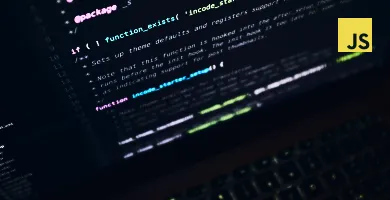






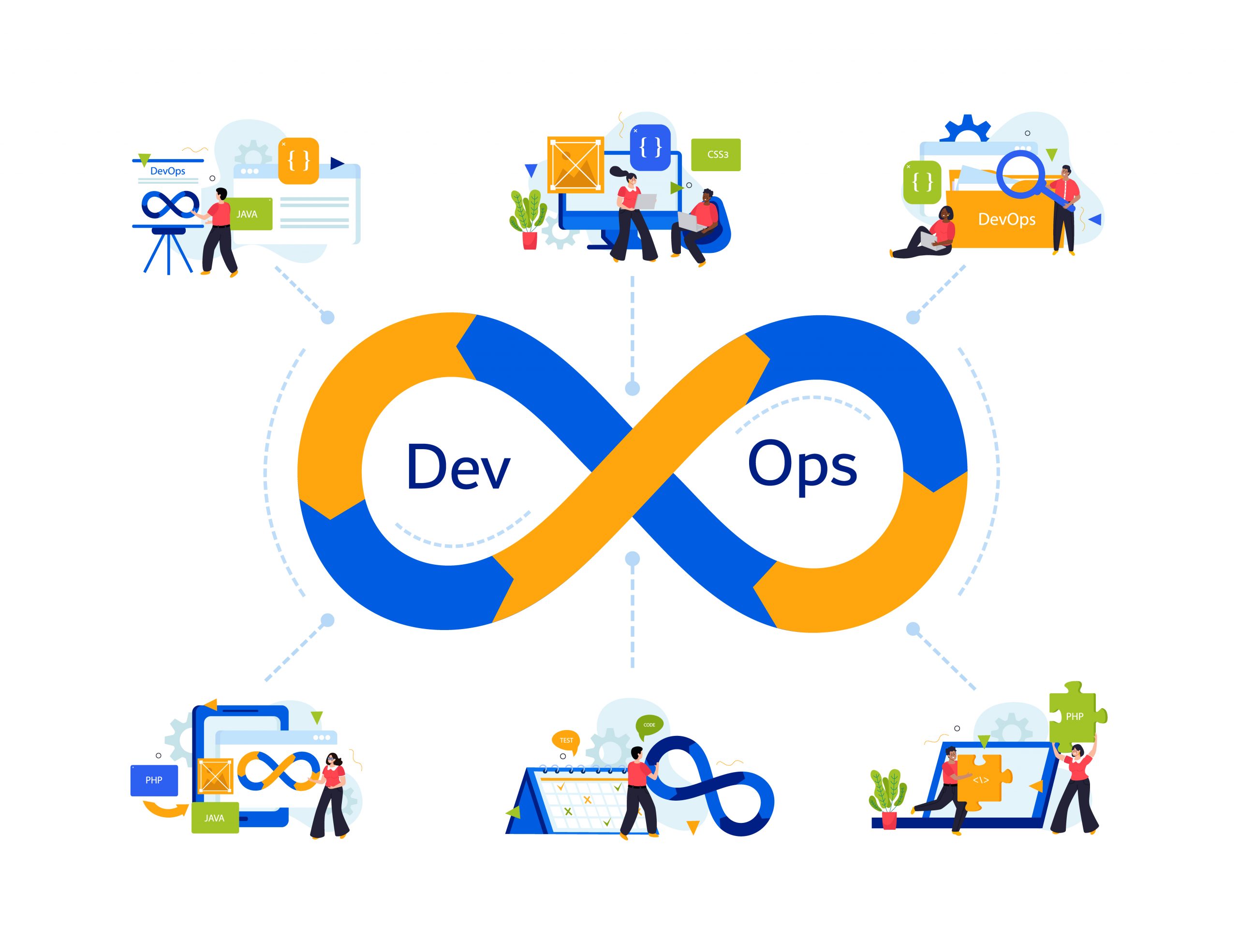
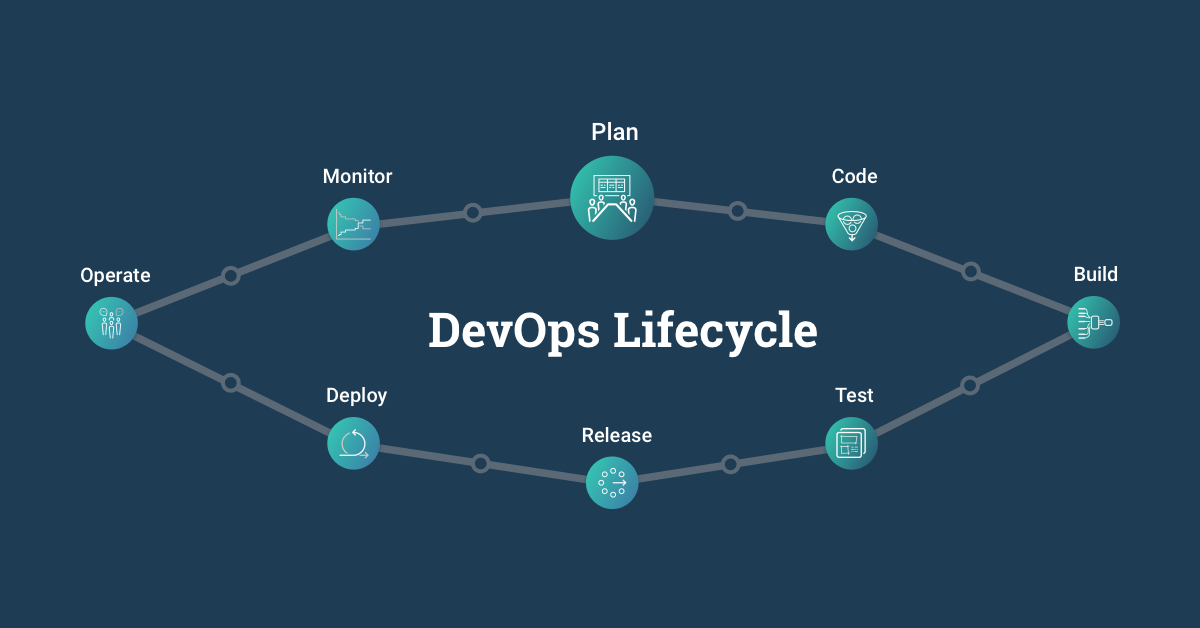



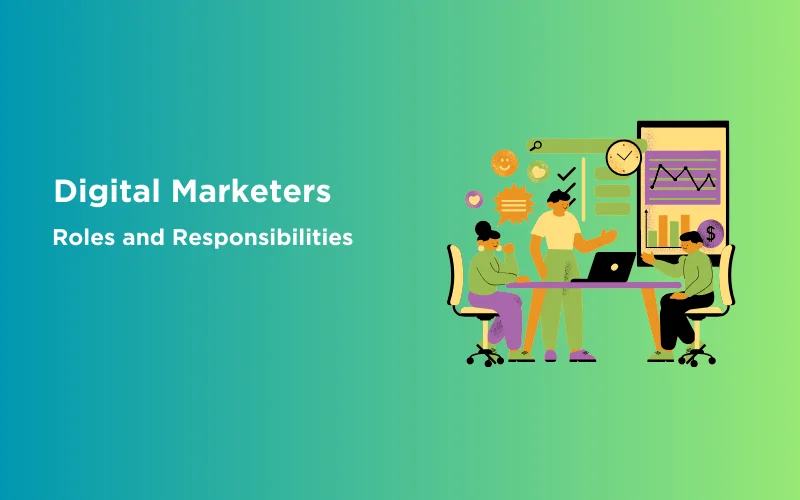
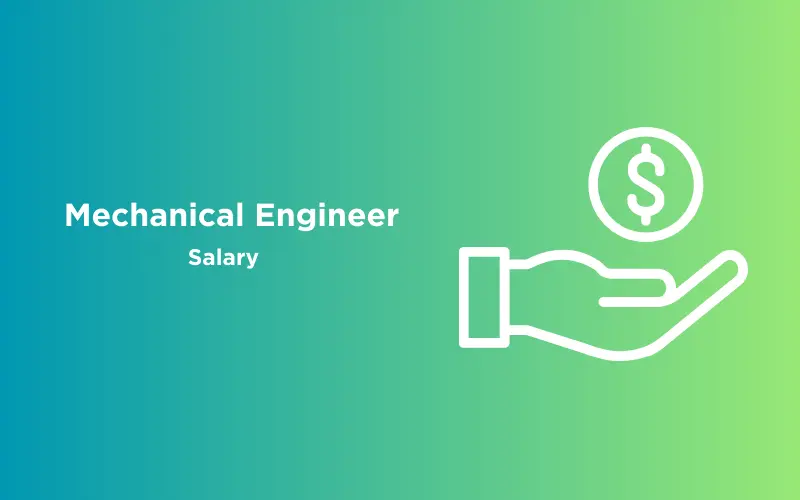
[…] You might also like to read this: 12 Essential Skills Required to Become an RPA Developer […]